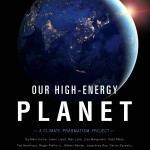Implementing Climate Pragmatism
Program Areas – Sustainability, Development
Our High-Energy Planet
 In recent years, “energy poverty” has emerged as a central concept in international conversations on energy, climate, and development policy. While the term does not have one universally accepted definition, it is used by academics and development professionals as a way of describing, in general terms, the condition of not having access to electricity or modern fuels. The condition of energy poverty exists across a wide spectrum: “energy poor” populations range from those with zero access to electricity and non-biomass fuel to those whose energy access is restricted by unreliable, intermittent, unhealthy or unaffordable supply.
In recent years, “energy poverty” has emerged as a central concept in international conversations on energy, climate, and development policy. While the term does not have one universally accepted definition, it is used by academics and development professionals as a way of describing, in general terms, the condition of not having access to electricity or modern fuels. The condition of energy poverty exists across a wide spectrum: “energy poor” populations range from those with zero access to electricity and non-biomass fuel to those whose energy access is restricted by unreliable, intermittent, unhealthy or unaffordable supply.
Typically, energy poverty is a sub-feature of structural poverty, a phenomenon most highly concentrated in least-developed regions including Sub-Saharan Africa, Southeast Asia, and the Indian Subcontinent. In total, approximately 1.3 billion people lack access to electricity and around 2.7 billion rely on traditional biomass for heating and cooking. These people are among the poorest in the world, and their lack of modern energy access is compounded by their lack of access to clean water, sanitation infrastructure, and modern health care. Around 85 percent live in rural areas, although rapid urbanization trends are driving them into sprawling mega-cities where they face challenges ranging from political marginalization to social exclusion and insufficient basic services.
In addition to improved health outcomes, economic productivity, social conditions, and environmental health, increased reliable energy access will also facilitate the meeting of the Millennium Development Goals, the UN’s flagship development challenges that include eradicating extreme poverty and hunger, achieving universal primary education, and ensuring environmental sustainability. Notably, the eight Millennium Development Goals do not specifically include expanding access to energy. Here we note that energy access will play a critical role in accomplishing virtually all of them, and is an absolute requirement for vibrant participation in growing economies.
Strategies for expanding energy access are a topic of rigorous study, but there is much work to be done on best practices, implementation, and considerations of political economy and demography. Moreover, energy equity has not been closely linked to climate policy, and has often been implicitly viewed as in tension with making progress on climate change—a view that we have explicitly rejected. Our research focuses on developing a clear set of goals and policy mechanisms for achieving universal energy access while also driving energy innovation toward low-and zero-carbon energy sources.
Documents